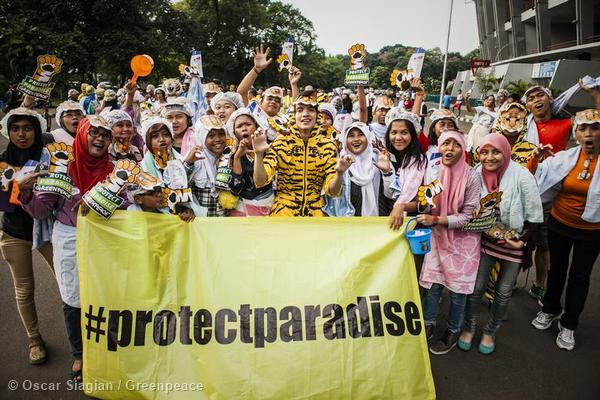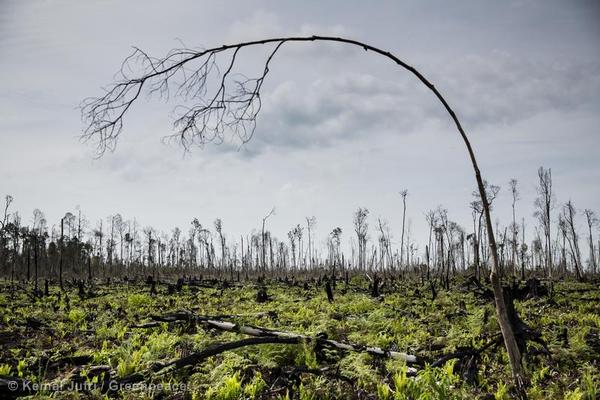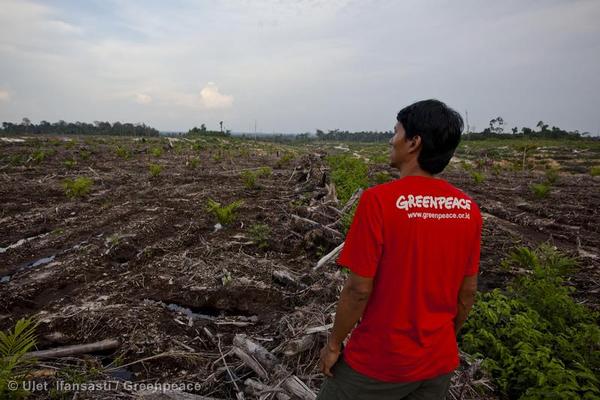Cargill, the largest importer of palm oil into the United States, one of the worlds largest commodities traders and a palm oil producer itself, made a pledge to break the link between its palm oil and deforestation, peat destruction and social exploitation, in response to pressure from Greenpeace, the Rainforest Action Network and other NGOs as well as many of its clients.
Cargills commitment adds to the more than 20 similar pledges from companies around the word palm oil producers, traders and consumers which are transforming an industry ranked as one the main triggers of forest destruction in Indonesia.
According to the findings of a recent study published by a science journal, the rate of deforestation in Indonesia is now the highest in the world, surpassing Brazils, with an estimated 840.000 hectares of deforestation between 2011 and 2012.
Cargills policy, which is effective immediately, comes on the heels of the Sustainable Palm Oil Manifesto (SPOM) announcement last week. But while a number of the big palm oil producers that are part of SPOM held off on real actions, Cargills policy is explicit in its pledge to implement the existing High Carbon Stock Approach. This is a critical step to ensure that Cargills supply chain will break its links to deforestation, as it adds carbon stocks as one of the criteria that must be considered when planning the use of the land.
But while the policy is a step in the right direction, it’s not as strong as the commitments made by the Palm Oil Innovation Group and lacks clearer targets for compliance, along with plans for independent verification. Additional shortcomings include Cargills lack of protection for food security and details on if and how this policy will apply to any future plantations Cargill acquires (so they can’t use the “it was already like this when I got here” excuse).
Greenpeace will continue to critically monitor the action plan Cargill is expected to announce at the end of the year, which must include details of how it will put this policy into practice worldwide and strict implementation deadlines.
With every additional commitment, the palm oil industry move towardscleaning up its act. To get there, other palm oil traders and producers must follow the example set by Cargill, Wilmar and GAR, adopting commitments that can be translated into immediate forest protection. Only when it stops the “talk and log and start to walk the talk, the palm oil industry will start to dissociate itself from negative impacts as deforestation, climate change and social conflict.
We cant wait for that day to come.
Neither canLil Bub, Princess Monster Truck, Hamilton the Hipster Cat, Nala Cat, Venus, Spangles and more.





